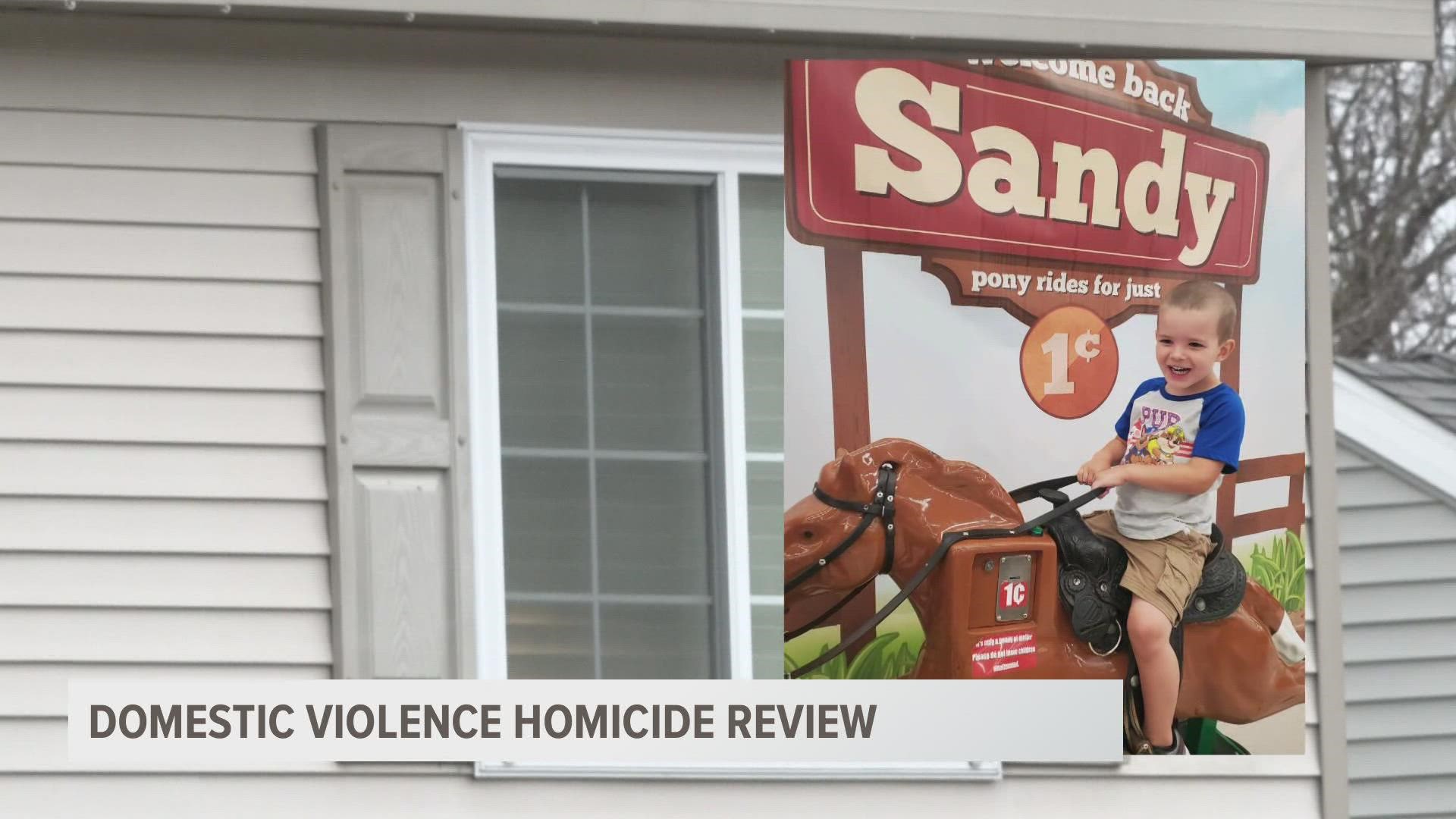KENT COUNTY, Mich. — A local task force released a first of its kind report Thursday with the help of a domestic violence survivor whose toddler son was killed last year. The report comes from the Kent County Domestic Violence Community Coordinated Response Team, and it was a review of the homicide of three-year-old Dylan Thebo.
Thebo's mother, Katlyn Hall, connected with the task force to figure out how her family fell through the cracks after her estranged husband shot their son and himself, even though she reported incidents of domestic violence in the past.
It's been almost seven months since Thebo's death. The murder-suicide followed more than a year's history of domestic violence in the family.
"Domestic violence is not okay, and and it doesn't present itself as a black eye or broken wrist," Hall says. "It's threats. It's controlling somebody's finances. It's threatening their kids, (saying) 'If you leave, this is what I'll do.' Violence is not just physical."
She approached the task force last fall, turning her grief into action. The task force went through court transcripts, personal protection order motions, divorce court proceedings and more. The full report can be found here.
"If through these changes were able to protect or save just one child's life, then Dylan will not have died in vain," Hall says.
"People are dying," Tara Aday, DVCCRT Co-Chair says. "We, as a community, have to do something different."
The DVCCRT is made up of domestic violence survivor advocate groups, court agencies and the Kent County Sheriff's Office. They have several recommendations for community groups, like civil and criminal attorneys, judges and agencies who help survivors of domestic violence, before they become victims. The task force refers to these groups as systemic actors.
"As demonstrated in this case and others, it's precisely after victims leave and take the steps to separate themselves from their abusers that victims and their kids are often killed," Aday says.
The task force has several recommendations for those systemic actors. First, they're encouraging the implementation of annual training on how to recognize the threatening signs of domestic violence in a case and the use of a shared evidence-based danger assessment tool.
They listed suspicious signs to look out for, like threats of homicide and suicide, mental health issues and more. All of which were documented concerns of Hall's before her son died.
"She believed and told systems time and time again that Derek had intent to kill her family, Dylan," Aday says. "There was a history of domestic violence, issues were brought around his mental health, unstable employment."
Another recommendation is to implement training for systemic actors on recognizing the use and effects of coercive control within domestic violence relationships.
The DVCCRT also urges courts to stop encouraging parties to enter into a Mutual Restraining Order instead of a Personal Protection Order during divorce proceedings.
The report reads: 'Attorneys and Judges who attempt to get a party to forgo their physical safety in order to appear\amicable to the Court or to give the perception that necessary communication between parties will be easier, can in fact put victims in increased danger and further reduce perpetrator accountability. The use of a Mutual Restraining Order fails to recognize the primary aggressor and limits law enforcement response as violations are not criminal acts and often exacerbate the problem of domestic violence rather than solve it.'
"The Mutual Restraining Order allowed Derek to legally possess and purchase the firearms he used to kill Dylan," Aday says.
The task force also encourages continued supervised parenting time until the concerns are genuinely addressed, and to implement consistent training for systemic actors on the impact domestic violence has on secondary trauma and compassion fatigue.
The DVCCRT knows some of these measures will take time, but Hall is hopeful to see change.
"If someone through training can see a pattern and recognize lethality factors, then it was all worth it," she says.
The Kent County Prosecutor says domestic violence is up about ten percent since the start of the pandemic, and the DVCCRT plans to do more domestic violence homicide reviews in the future.
►Make it easy to keep up to date with more stories like this. Download the 13 ON YOUR SIDE app now.
Have a news tip? Email news@13onyourside.com, visit our Facebook page or Twitter. Subscribe to our YouTube channel.

